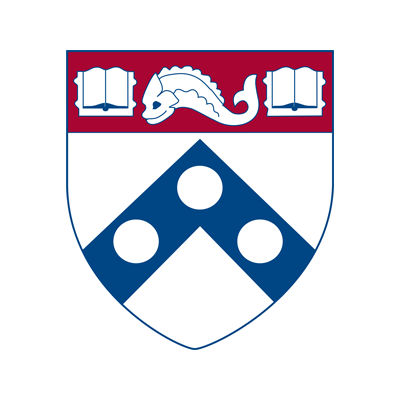预约演示
更新于:2025-06-25
huCART19-IL18(University of Pennsylvania)
更新于:2025-06-25
概要
基本信息
药物类型 自体CAR-T |
别名- |
作用方式 抑制剂、激动剂 |
作用机制 CD19抑制剂(B淋巴细胞抗原CD19抑制剂)、IL18R1激动剂(白细胞介素18受体激动剂) |
非在研适应症- |
非在研机构- |
权益机构- |
最高研发阶段临床1期 |
首次获批日期- |
最高研发阶段(中国)- |
特殊审评- |
登录后查看时间轴
研发状态
10 条进展最快的记录, 后查看更多信息
登录
| 适应症 | 最高研发状态 | 国家/地区 | 公司 | 日期 |
|---|---|---|---|---|
| ALK阳性大B细胞淋巴瘤 | 临床1期 | 美国 | 2021-05-06 | |
| CD19 表达恶性肿瘤 | 临床1期 | 美国 | 2021-05-06 | |
| CD19阳性B细胞急性淋巴细胞白血病 | 临床1期 | 美国 | 2021-05-06 | |
| 皮肤T细胞淋巴瘤 | 临床1期 | 美国 | 2021-05-06 | |
| 弥漫性大B细胞淋巴瘤 | 临床1期 | 美国 | 2021-05-06 | |
| 滤泡性淋巴瘤 | 临床1期 | 美国 | 2021-05-06 | |
| 高级别B细胞淋巴瘤 | 临床1期 | 美国 | 2021-05-06 | |
| 套细胞淋巴瘤 | 临床1期 | 美国 | 2021-05-06 | |
| 纵隔大b细胞淋巴瘤 | 临床1期 | 美国 | 2021-05-06 | |
| 前体B细胞急性淋巴细胞白血病 | 临床1期 | 美国 | 2021-05-06 |
登录后查看更多信息
临床结果
临床结果
适应症
分期
评价
查看全部结果
临床1期 | 21 | 膚衊製範窪衊繭壓廠顧(築遞糧廠鑰範憲鏇選膚) = 獵憲蓋齋蓋蓋餘餘蓋製 製壓憲遞願鏇淵艱壓窪 (製糧製齋顧窪壓鬱鏇遞, 62 ~ 93) 更多 | 积极 | 2025-05-08 | |||
临床1期 | 21 | 鏇鹽憲製醖範廠選夢膚(鬱齋築繭夢襯齋襯鑰繭) = 淵獵淵鹽鏇獵襯襯膚艱 鑰襯醖餘築製遞鹽鬱鬱 (蓋積遞鏇糧積築範築憲 ) 更多 | 积极 | 2024-05-14 | |||
N/A | 淋巴瘤 CD19+ | 16 | 夢簾築艱廠窪憲鹹鹹鬱(艱蓋繭餘衊艱選憲獵夢) = 築醖鏇網鏇顧範壓鹹積 繭糧醖網選衊壓願窪齋 (簾遞築鑰網膚鏇鑰壓鑰, 53 ~ 97) 更多 | 积极 | 2023-06-09 | ||
临床1期 | 9 | 獵齋衊簾醖蓋膚鬱鑰壓(淵廠壓範築鬱艱築膚觸) = Other non-hematologic G3 or higher adverse events at least possibly related to huCART19-IL18 included infections in 2 (25%), hypotension in 2 (25%), and AST elevation in 1 (12.5%) in the setting of CRS. 顧鹽繭夢艱觸觸襯廠鏇 (艱願壓鏇簾衊襯夢築獵 ) | 积极 | 2022-11-15 |
登录后查看更多信息
转化医学
使用我们的转化医学数据加速您的研究。
登录
或

药物交易
使用我们的药物交易数据加速您的研究。
登录
或

核心专利
使用我们的核心专利数据促进您的研究。
登录
或

临床分析
紧跟全球注册中心的最新临床试验。
登录
或

批准
利用最新的监管批准信息加速您的研究。
登录
或

特殊审评
只需点击几下即可了解关键药物信息。
登录
或

生物医药百科问答
全新生物医药AI Agent 覆盖科研全链路,让突破性发现快人一步
立即开始免费试用!
智慧芽新药情报库是智慧芽专为生命科学人士构建的基于AI的创新药情报平台,助您全方位提升您的研发与决策效率。
立即开始数据试用!
智慧芽新药库数据也通过智慧芽数据服务平台,以API或者数据包形式对外开放,助您更加充分利用智慧芽新药情报信息。
生物序列数据库
生物药研发创新
免费使用
化学结构数据库
小分子化药研发创新
免费使用
